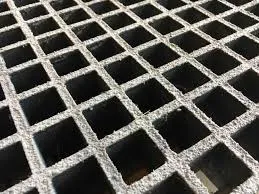
-
 Afrikaans
Afrikaans -
 Albanian
Albanian -
 Amharic
Amharic -
 Arabic
Arabic -
 Armenian
Armenian -
 Azerbaijani
Azerbaijani -
 Basque
Basque -
 Belarusian
Belarusian -
 Bengali
Bengali -
 Bosnian
Bosnian -
 Bulgarian
Bulgarian -
 Catalan
Catalan -
 Cebuano
Cebuano -
 China
China -
 China (Taiwan)
China (Taiwan) -
 Corsican
Corsican -
 Croatian
Croatian -
 Czech
Czech -
 Danish
Danish -
 Dutch
Dutch -
 English
English -
 Esperanto
Esperanto -
 Estonian
Estonian -
 Finnish
Finnish -
 French
French -
 Frisian
Frisian -
 Galician
Galician -
 Georgian
Georgian -
 German
German -
 Greek
Greek -
 Gujarati
Gujarati -
 Haitian Creole
Haitian Creole -
 hausa
hausa -
 hawaiian
hawaiian -
 Hebrew
Hebrew -
 Hindi
Hindi -
 Miao
Miao -
 Hungarian
Hungarian -
 Icelandic
Icelandic -
 igbo
igbo -
 Indonesian
Indonesian -
 irish
irish -
 Italian
Italian -
 Japanese
Japanese -
 Javanese
Javanese -
 Kannada
Kannada -
 kazakh
kazakh -
 Khmer
Khmer -
 Rwandese
Rwandese -
 Korean
Korean -
 Kurdish
Kurdish -
 Kyrgyz
Kyrgyz -
 Lao
Lao -
 Latin
Latin -
 Latvian
Latvian -
 Lithuanian
Lithuanian -
 Luxembourgish
Luxembourgish -
 Macedonian
Macedonian -
 Malgashi
Malgashi -
 Malay
Malay -
 Malayalam
Malayalam -
 Maltese
Maltese -
 Maori
Maori -
 Marathi
Marathi -
 Mongolian
Mongolian -
 Myanmar
Myanmar -
 Nepali
Nepali -
 Norwegian
Norwegian -
 Norwegian
Norwegian -
 Occitan
Occitan -
 Pashto
Pashto -
 Persian
Persian -
 Polish
Polish -
 Portuguese
Portuguese -
 Punjabi
Punjabi -
 Romanian
Romanian -
 Russian
Russian -
 Samoan
Samoan -
 Scottish Gaelic
Scottish Gaelic -
 Serbian
Serbian -
 Sesotho
Sesotho -
 Shona
Shona -
 Sindhi
Sindhi -
 Sinhala
Sinhala -
 Slovak
Slovak -
 Slovenian
Slovenian -
 Somali
Somali -
 Spanish
Spanish -
 Sundanese
Sundanese -
 Swahili
Swahili -
 Swedish
Swedish -
 Tagalog
Tagalog -
 Tajik
Tajik -
 Tamil
Tamil -
 Tatar
Tatar -
 Telugu
Telugu -
 Thai
Thai -
 Turkish
Turkish -
 Turkmen
Turkmen -
 Ukrainian
Ukrainian -
 Urdu
Urdu -
 Uighur
Uighur -
 Uzbek
Uzbek -
 Vietnamese
Vietnamese -
 Welsh
Welsh -
 Bantu
Bantu -
 Yiddish
Yiddish -
 Yoruba
Yoruba -
 Zulu
Zulu
fiberglass flange
Understanding Fiberglass Flanges Benefits, Types, and Applications
Fiberglass flanges are becoming increasingly popular in various industries due to their unique properties and benefits. These components play a crucial role in connecting pipes, valves, pumps, and other equipment in piping systems. This article will explore what fiberglass flanges are, their advantages, different types, and their applications in various sectors.
What Are Fiberglass Flanges?
Fiberglass flanges are components made from reinforced fiberglass resin, a composite material that combines glass fibers with a polymer matrix. This combination results in a lightweight, strong, and corrosion-resistant product that is highly suited for demanding environments. Fiberglass flanges can be designed in multiple forms to match different piping standards and requirements, effectively serving as connectors in various industrial systems.
Advantages of Fiberglass Flanges
1. Corrosion Resistance One of the standout features of fiberglass flanges is their resistance to corrosion. Unlike metal flanges, which can corrode when exposed to harsh chemicals or marine environments, fiberglass flanges do not suffer from rust or degradation over time. This property makes them ideal for applications in chemical processing, wastewater treatment, and marine industries.
2. Lightweight Fiberglass flanges are significantly lighter than their metal counterparts. This reduced weight simplifies installation and handling, cutting down on transportation costs and making them easier to manipulate during assembly.
3. Strength and Durability Fiberglass is known for its high strength-to-weight ratio. When properly manufactured, fiberglass flanges can withstand high pressures and temperatures, making them suitable for high-stress applications.
4. Thermal Insulation Fiberglass inherently has good thermal insulating properties, which helps in reducing heat transfer in piping systems. This quality is essential for maintaining the temperature of the substances being transported and enhances energy efficiency.
5. Electrical Insulation Fiberglass flanges also exhibit excellent electrical insulating properties, making them ideal for use in environments where electrical conductivity might pose a risk.
Types of Fiberglass Flanges
Fiberglass flanges come in several types to accommodate different needs. Some common types include
fiberglass flange

2. Raised-faced Flanges Designed for higher pressure scenarios, raised-faced flanges offer a larger surface area to create a tighter seal with gaskets.
3. Blind Flanges These are solid flanges used to terminate the end of a piping system. They can be vital in maintaining system integrity and pressure.
4. Slotted Flanges Used in areas where flexibility is required, slotted flanges allow for some movement between connected pipes.
5. Lap Joint Flanges These flanges consist of two parts – the loose flange and the stub end. They allow for easy alignment and flexibility in assembly.
Applications of Fiberglass Flanges
The applications of fiberglass flanges span a wide range of industries, owing to their versatility
1. Chemical Industry Due to their corrosion resistance, fiberglass flanges are widely used in chemical processing plants, where exposure to harsh chemicals is a concern.
2. Water Treatment Facilities They are used in wastewater management systems, where durability and resistance to corrosive agents like sulfuric acid are critical.
3. Marine Engineering The marine environment can be exceptionally harsh due to saltwater conditions. Fiberglass flanges are an excellent choice for boat manufacturing and marine pipeline systems.
4. Oil and Gas Sector In oil refineries and gas plants, fiberglass flanges help minimize maintenance costs while ensuring a safe operational environment.
5. Construction Fiberglass flanges are increasingly being utilized in construction applications, particularly in systems that require lightweight and durable components.
Conclusion
Fiberglass flanges represent a significant advancement in material technology, providing a reliable solution for various industrial applications. Their corrosion resistance, lightweight, strength, thermal, and electrical insulation properties make them an ideal choice over traditional metal flanges in many cases. As industries continue to seek efficient and durable components, fiberglass flanges are poised to play an essential role in the future of pipeline systems and assemblies. Whether in chemical plants, water treatment facilities, or marine applications, the advantages of fiberglass flanges are clear, why they should be considered as a standard component in relevant industries.









